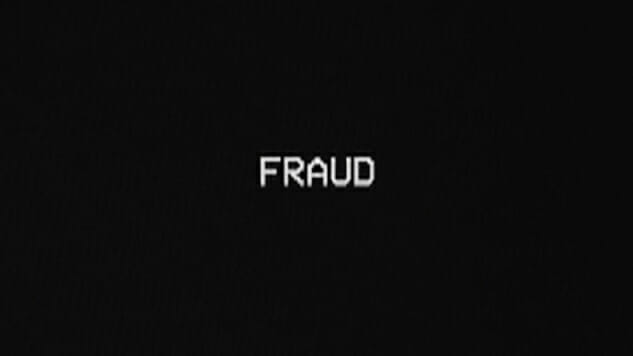Director Dean Fleischer-Camp on Fraud and Chicanery

In the documentary feature Fraud, director Dean Fleischer-Camp pieces together one family’s seemingly innocuous YouTube uploads to uncover a pattern of criminal activity and attempts to stay ahead of the authorities. Mixing cinéma vérité and a morality play, Fraud evokes much broader conversations about American materialism, consumerism and capitalism. More importantly, it speaks to the truthiness of information on the web.
In other words, what you see isn’t always what you get.
[Spoiler alert.] While the family’s home movies are real, Fleischer-Camp and editor Jonathan Rippon have spliced together a fictional narrative for the film. We were in attendance at an AFI Festival screening and Q&A in November when Fleischer-Camp revealed his own chicanery. He introduced the family, whose last name and hometown are being kept private. Aside from some dubious choices in fashion and uploading way too much information to YouTube, they committed no crimes.
Paste had a chance to talk to Fleischer-Camp about Fraud, his first feature and a departure from his well-known 2010 short film, Marcel the Shell with Shoes On. His collaboration with actress and comedian Jenny Slate, about an anthropomorphic seashell, has earned upwards of 29 million YouTube views to date.
Paste Magazine: Marcel the Shell is so different from Fraud.
Dean Fleischer-Camp: I don’t think they’re that similar, either. I think that anything that you make is just an expression of your curiosity and your playfulness at that particular moment. I’m discovering that I’m really into things that require a lot of editing and projects where the placeholders and the spontaneity of the creative endeavor extends into the editing process.
I think with Marcel, that’s a project where we begin with all this raw material where Jenny and I are just improvising together, and then it gets edited. It gets chopped up, and I discover little jokes and opportunities. Then we go back and [find] more stuff and it gets edited again, so it’s like an iterative process in that way. Fraud is kind of a similar thing where we went in with this very loose script and then found a way to tell the story through the editing of the footage.
Paste: So you had a Fraud storyline or plot from the outset?
Fleischer-Camp: Well, I didn’t have an outline until well into the process. We knew we were going to tell a story, manipulate it with all this footage that we had. And then at a certain point—I think it’s when we paired [the family’s] footage of them watching Fourth of July fireworks with a shot of a house burning down, that we kind of discovered what the plot maybe could be. We discovered what the potential was and sort of wrote a very loose outline based on that idea.
Paste: What was the editing process like on Fraud?
Fleischer-Camp: [The family’s] looking at a computer screen, looking at a late bill…. Can we find a piece of audio that makes it sound like they’re cash strapped? We used Final Cut [Pro] X, which I think has been abandoned by most professional editors because it looks too consumer-based or something. But we used it because it has this one feature that’s a very robust architecture for categorizing and putting things into bins and sub-bins and making your footage very searchable. So it was very frustrating to use in every other respect, but this one feature made the whole thing possible.
We rewatched all of their footage [110 hours] and just tagged moments with keywords that applied. It’s hard to say how much of that is what we used. Some of that stuff was duplicates because he [Gary, the father] would upload the same portions of the same thing four times.
Paste: What was it like meeting the family?
Fleischer-Camp: We met them probably an hour before the screening at AFI Fest. I’d never met them before. We had emailed before, and I had talked to Gary on the phone twice, but otherwise, I had no communication with them. I didn’t want to know what they were really like, and I didn’t really want them to color the way I edited or the possibilities that I saw. That was really wild, meeting them after I’ve been looking at their faces for a year and a half. It felt like a waking dream.
Paste: How did you discover Gary and his family in the first place?
Fleischer-Camp: I had been a fan of their [YouTube channel] for about four years, but only had this idea somewhat recently. So I got in touch with them when I began to suspect that maybe there was enough there for a feature and not just a weird gallery piece or something like that. I got in touch with them and properly licensed the footage and told them what the project was. I didn’t have an idea of what the story was going to be [then], but I checked in once I figured out that it was maybe going to paint them as like criminals. Gary is very game. Even though he’s not a professional creative, I think that he’s really interested in creative pursuits. He’s very open-minded and he was kind of just like, “Yeah!” There was never any kind of anxiety about that.
-

-

-

-

-

-

-

-

-

-

-

-

-

-

-

-

-

-

-

-

-

-

-

-

-

-

-

-

-

-

-

-

-

-

-

-

-

-

-

-








































